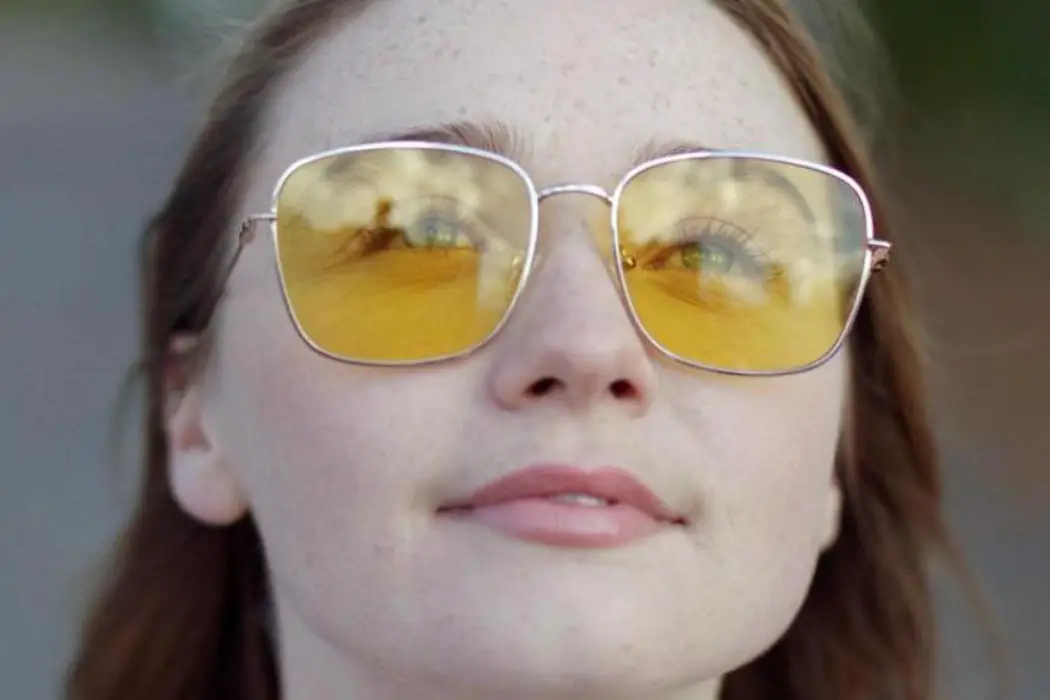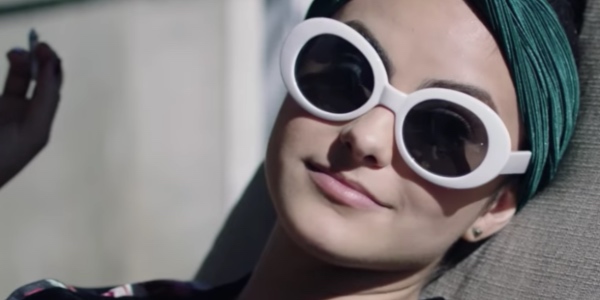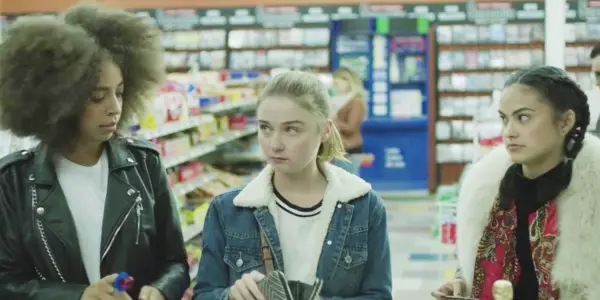THE NEW ROMANTIC: The Perils Of Cultural References & Self-Reflexivity

Tynan loves nagging all his friends to watch classic movies…
The first thing that pops into my head when I hear “The New Romantic” is the similar-sounding, upbeat Taylor Swift track from a few years back. It was one phase in her transition from country sweetheart to glorified pop superstar. More qualified folks than me have debated this highly divisive dialogue between “Old” and “New Taylor.” But there’s no denying how catchy it is as the chorus rings out:
Baby, we’re the new romantics
Come on, come along with me
Heartbreak is the national anthem
We sing it proudly
We are too busy dancing to get knocked off our feet
Baby, we’re the new romantics
The best people in life are free
If we listen to Swift, this current generation is young and bored. Heartbreak is the national anthem. Love is a battlefield. The best people in life are free. You can either read this from a monetary and personally advantageous perspective or for the very fact that if you don’t have to buy someone, it’s quite possible they might actually love you. Regardless, there’s this detached, knowing nonchalance about love. We might get hurt but we’ll just go back to dancing. It’ll be okay.
It occurs to me ever since the beginning of the 21st century, all forms of media are trying to appeal to this aloof cynicism by splitting with convention – whether it be traditional love, and with it, traditional love songs, or a generation of equally beloved and rigorously maligned rom-coms. The trick is not actually drawing so much attention to this desired effect. Speaking from experience, there is a craving to broadcast all your references, to make sure your audience is onboard and they understand. You like Nora Ephron, you know convention, and now you’re going to subvert it.
But we forget viewers are often very astute and they know their movies even intuitively. This hand holding can grow pretentious and couching your references can be the most effective avenue of distillation. Because you’re taking inspiration from other films but making it wholly your own so the reference is there but almost disappears into your story organically..

I also realized while I enjoyed the self-reflexive voiceover device the first time I heard it (or even the second time), now it feels like every new indie is pulling it out. It speaks to the same symptom. Every new coming-of-age story is looking to separate itself not only from its peers but also its predecessors. The easiest solution is a unique heartbeat to build around, accentuated by self-aware statements. Our heroine flat out tells us, “This is not a 90s rom-com” just in case we aren’t clear.
The Voice of The Hopeless Romantic
Thankfully writer-director Carly Stone‘s debut feature is buoyed by a personable showing from Jessica Barden. Her voice is one we are eager to hear (and she does a fine job masking her native Yorkshire accent). It’s a testament to her breezy chill that the feature has some good vibes to offer.
Blake pens “The Hopeless Romantic” column for her college newspaper. While she does her very best to make her attempt at gonzo journalism titillating – even trying to prove to her coworkers how wild her experiences have been – she is generally dismissed. Her snarky editor Matt (Avan Jogia) takes her off this dead-end assignment because rule #1 is: You follow the story, not your feelings. Another colleague, Jacob (Brett Dier), helpfully pipes up, “Your love life’s boring.” This is her major flaw. She’s too nice and probably cares too much (if we can call this a problem). And yet it is.
Because this is the Tinder generation, romance has been pronounced dead. The life of a sugar baby or gold digger – formally scorned upon – looks like the pragmatic road to happiness. For a college student, it’s an unconventional yet highly effective way to get out of student debt. Blake unwittingly crosses paths with such an entrepreneur and picks her peer’s brain.
For Morgan (Camila Mendes), “it’s just business.” She knows what they want – to have their ego stroked – and she knows what she wants, so they reach a mutually beneficial agreement. To Blake, it’s both intriguing and a little discomforting but such a scoop might be just the antidote to revive her column and help her win a coveted award. She finds her gateway at a secluded lake house party and as it turns out, she meets a potential goldmine all her own.

He’s a college professor named Ian (Timm Sharp), a pragmatic individual. He doesn’t want to spend his time on a girlfriend, not knowing what she wants and spending needless hours texting, fighting, and compromising. But he wants to see Blake again. She considers the potential of the arrangement. It’s almost as if she’s trying to convince herself as much as her audience that this is okay.
Her justifications come rolling out. What’s wrong with wealthy older people supporting poor younger ones? True, Jane Austen heroines rebelled against norms in search of romantic love. But are we repulsed by our own natural instincts? Because maybe relationships aren’t supposed to be for love – they’re for survival. And chivalry isn’t necessarily dead. It can still exist in such a context. Can’t it?
An Old Romantic with a Facelift
The New Romantic suggests, however you package it, there’s a possibility all our wanderings might still come back to love. Maybe it speaks to some of the deepest longings of our hearts. Yes, we want food, shelter, comfort, all those things, but most of all we want the affection and validation of others. It’s not a new phenomenon, but it’s worth remembering. So Stone‘s effort is a classic example of a normal, maladjusted person trying to be everything they’re not by pushing themselves outside of their comfort zone only to reaffirm who they really are.
Like any good movie character, Blake is steeped in references like Hunter S. Thompson’s Fear and Loathing in Las Vegas, Pretty Woman allusions, and of course, a climactic nod to Sleepless in Seattle. She even disses on her best friend Nikki (Hayley Law), in retaliation for vetoing all her Halloween costumes, “What are you supposed to be, a manic pixie dream girl?”
We know movies never exist in a vacuum. For example, Love Affair beget An Affair to Remember which beget Sleepless in Seattle which inspires The New Romantic. I just wish this picture was willing to venture out on its own. Obviously, it doesn’t have too much time to work with, but I could almost see a television spin-off making better use of the ensemble.
Because it struck me, I like the characters, at least the young ones; these college kids aren’t all great people but they have their moments. But The New Romantic almost misdirects us. It gets caught up in this novel relationship between a young student and her older suitor. We think this is the relationship we’re supposed to be considering. It is being posed as a bit of a cinematic case study.
The story comes back around to where it needs to be if we listen to our heart, with Blake finding a boy with a wry sense of humor and shared life experience. But then all of what we went through feels like a bit of the waste – like all our focus was on the wrong things – but then again, maybe that’s what happens when we’re young. We get too caught up in cultural references, what others will think of us, and further distractions throw us off our game. It takes going back to the basics and honing in on our one true story. Turns out we’re not really new romantics at all, just old romantics with a minor facelift.
What are your favorite subtle references in a movie? What do you think makes riffs off past rom-coms most effective? Tell us your thoughts in the comments below!
The New Romantic was released in US theaters on November 9th, 2018. For all international release dates, see here.
Does content like this matter to you?
Become a Member and support film journalism. Unlock access to all of Film Inquiry`s great articles. Join a community of like-minded readers who are passionate about cinema - get access to our private members Network, give back to independent filmmakers, and more.
Tynan loves nagging all his friends to watch classic movies with him. Follow his frequent musings at Film Inquiry and on his blog 4 Star Films. Soli Deo Gloria.












